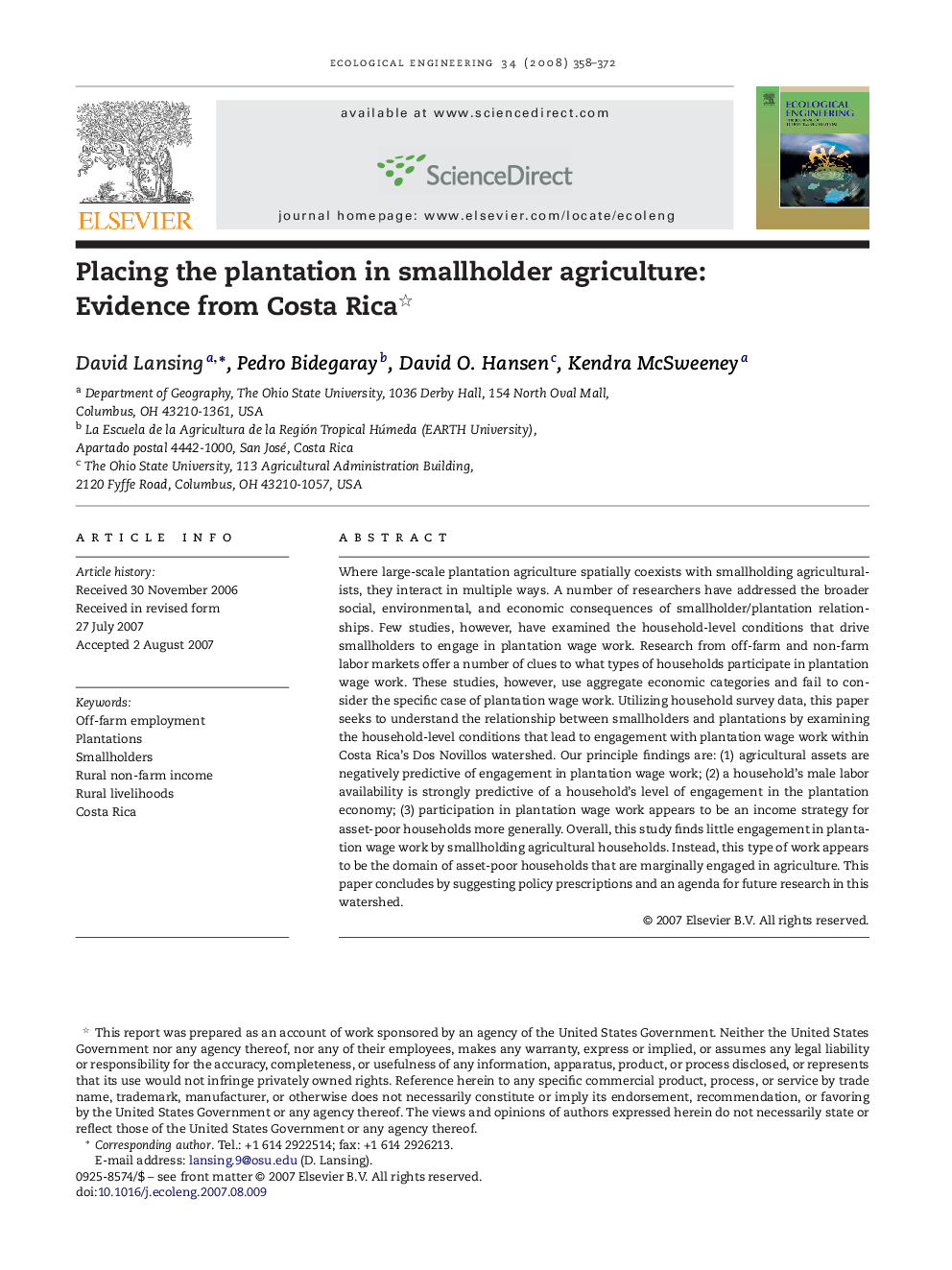| Article ID | Journal | Published Year | Pages | File Type |
|---|---|---|---|---|
| 4390697 | Ecological Engineering | 2008 | 15 Pages |
Where large-scale plantation agriculture spatially coexists with smallholding agriculturalists, they interact in multiple ways. A number of researchers have addressed the broader social, environmental, and economic consequences of smallholder/plantation relationships. Few studies, however, have examined the household-level conditions that drive smallholders to engage in plantation wage work. Research from off-farm and non-farm labor markets offer a number of clues to what types of households participate in plantation wage work. These studies, however, use aggregate economic categories and fail to consider the specific case of plantation wage work. Utilizing household survey data, this paper seeks to understand the relationship between smallholders and plantations by examining the household-level conditions that lead to engagement with plantation wage work within Costa Rica's Dos Novillos watershed. Our principle findings are: (1) agricultural assets are negatively predictive of engagement in plantation wage work; (2) a household's male labor availability is strongly predictive of a household's level of engagement in the plantation economy; (3) participation in plantation wage work appears to be an income strategy for asset-poor households more generally. Overall, this study finds little engagement in plantation wage work by smallholding agricultural households. Instead, this type of work appears to be the domain of asset-poor households that are marginally engaged in agriculture. This paper concludes by suggesting policy prescriptions and an agenda for future research in this watershed.
